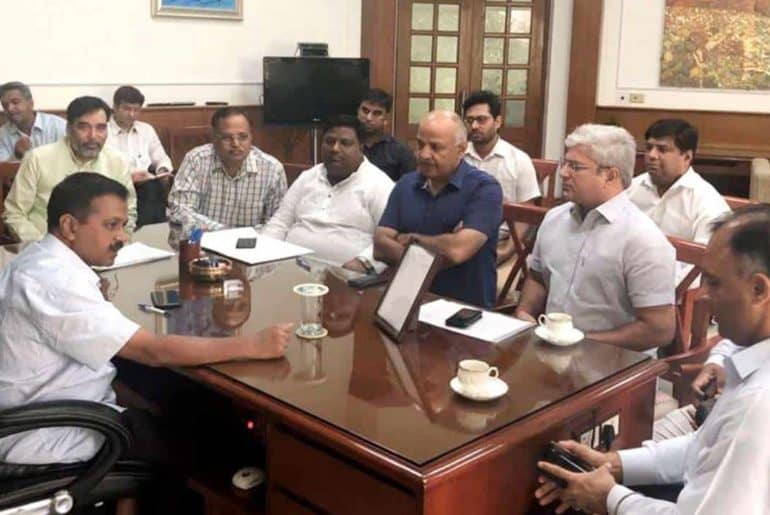Over 2,700 teaching and non-teaching staff of 12 Delhi University (DU) colleges did not get salaries for the last two months as the Aam Aadmi Party (AAP) Government continues to withhold release of funds over non-formation of Governing Bodies (GB).
Out of the 28 DU colleges, 16 get only 5% of their funds from the Delhi Government while 12 receive 100% funding.
The GBs, comprising members nominated by the university and the Delhi Government, take all decisions for the smooth functioning of a college, including the appointment of teaching and non-teaching staff.
Some Principals of various colleges across DU wondered why the GB term could not be extended. “In the past, the term has been extended for almost six months. It can also be done now until the process of formation of the Governing Body is completed,” said a Principal whose college receives 100% funding. “The government should understand that we have to pay salary to the staff and their arrears.”
Dhananjoy Shaw, Principal of Indira Gandhi Institute of Physical Education and Sports Sciences (IGIPESS), said the fund crunch has affected student activities as well. “We haven’t been able to pay salaries to our staff for two months. Since some student activities had been planned before, we are executing them at the lowest possible cost,” he said, adding that managing day-to-day expenses will be difficult from October.
A contrary argument came to the fore when an official in the Delhi Government said that DU is insisting on not forming GBs in these colleges. “It is clear that there is an attempt to shield colleges from accountability and intent to continue corruption,” the official said.
“I am able to manage our daily expenditure somehow as this is not my only income source. But there are many employees whose day-to-day expenditures depend completely on their salary. Due to the ego clashes between the Vice Chancellor Yogesh Tyagi, and the AAP Government, it is the employee who is suffering.” another DU official grieves.
In a protest organised by Delhi University Teachers’ Association (DUTA), outside Vidhan Sabha on Friday, staff members said that “uncertainty in getting salaries has led to crisis” in these 12 colleges. “The worst-hit are the teaching and non-teaching staff working on ad hoc or contract basis,” DUTA said in a statement.
Delhi University College Karamchari Union (DUCKU) plan to sit on strike on 1st and 3rd October.
The Vice-Chancellor and Arvind Kejriwal did not respond to requests for comment.
Feature Image Credits: DNA India
Bhagyashree Chatterjee


















